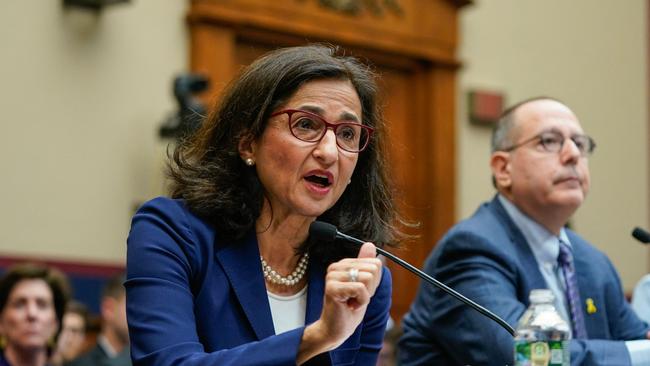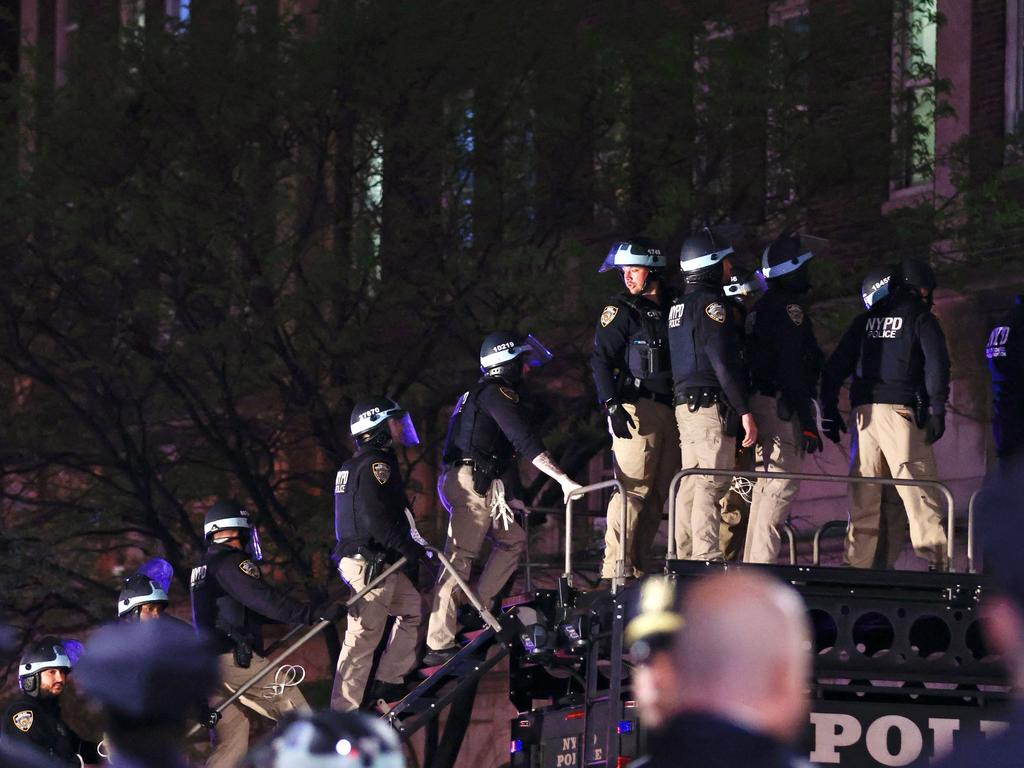Columbia University president Minouche Shafik resigns amid antisemitism accusations
In a shock announcement Columbia University President Minouche Shafik has resigned effective immediately in the wake of months of criticism of her leadership of the university during pro-Palestinian protests earlier this year.

The president of Columbia University, Nemat Shafik, has resigned her post as leader of one of America’s most prestigious universities after months of criticism over her handling of pro-Palestinian protests, which rocked the nation’s most elite universities for months in the wake of Hamas’s October 7th attack on Israel.
Egyptian-born Shafik, who spent most of her career in the UK, ended her term as the first female president of Columbia in a surprise announcement late Wednesday (Thursday AEST), conceding she had overseen “a period of turmoil where it ha[d] been difficult to overcome divergent views across our community”.
Columbia university, whose main campus is in the upper west side of Manhattan, became the epicentre of nationwide university protests, largely in favour of Palestinians and against Israel, that saw hundreds of arrests across the country as students and faculty clashed over Israel’s response to Hamas’s terrorist attack.
“This period has taken a considerable toll on my family, as it has for others in our community,” wrote Dr Shafik in her resignation letter, 13 months after taking up her appointment.
“Over the summer, I have been able to reflect and have decided that my moving on at this point would best enable Columbia to traverse the challenges ahead”.

Dr Sharif had faced criticism both for being too lenient and too tough on university protests that prompted her twice to call New York police to arrest students, who had at one point taken over buildings on campus.
In April she testified before Congress amid allegations that she and other university presidents had failed to protect Jewish students, where she failed to straddle the fine line between defending free speech and ensuring student wellbeing well enough to survive.
After making all classes virtual in April to calm campus tensions, in July she removed three senior deans, who later resigned, for sending “troubling” text messages that “touched on ancient antisemitic tropes”.

Dr Shafik, who goes by the name Minouche, looked set to survive in her post after the resignations of fellow elite university presidents of Harvard, Claudine Gay, and University of Pennsylvania, Liz Magill, in the wake of their appearances before congress in December that were widely condemned for appearing heartless and insincere amid Jewish students’ fears for their safety.
Republican congresswoman Elise Stefanik, who shot to fame in the US for interrogating the university presidents in the wake of the protests, said “THREE DOWN, so many to go” in a social media post.

“Minouche Shafik’s failed presidency was untenable and that is was only a matter of time before her forced resignation. After failing to protect Jewish students and negotiating with pro Hamas terrorists, this forced resignation is long overdue,” she said.
Pro-Palestinian group Columbia Students for Justice in Palestine also celebrated her resignation, saying in a public statement “after months of chanting ‘Minouche Shafik you can’t hide’ she finally got the memo”.
“To be clear, any future president who does not pay heed to the Columbia student body’s overwhelming demand for divestment will end up exactly as President Shafik did,” they added.
Dr Shafik, who said she would take up a position with the British government, wasn’t the only high-profile career casualty of the Israel-Gaza war after two of three ‘far left’ Democratic Party members of congress lost their preselections to Democrats better disposed to Israel.
Jamal Bowman and Cori Bush, two of three members of the so-called ‘squad’, an informal group of Democratic members of congress who typically champion the Palestinian cause, lost their congressional primaries in June and last week after pro-Israel groups spent around US$25 million in support of their opponents, making the two races the most expense House primaries ever.
The third, squad Democratic congresswoman Ilhan Omar, won hers this week.






To join the conversation, please log in. Don't have an account? Register
Join the conversation, you are commenting as Logout